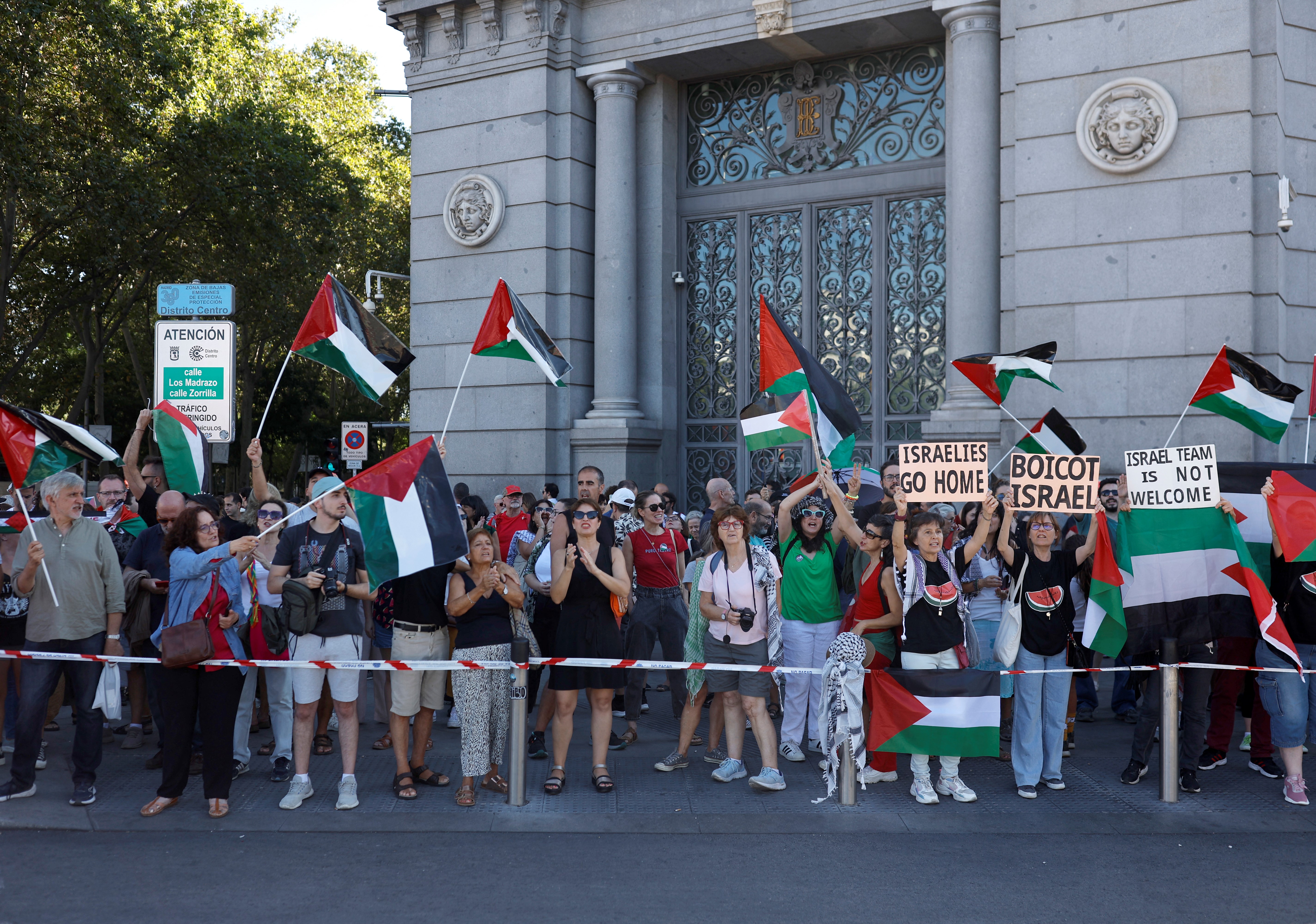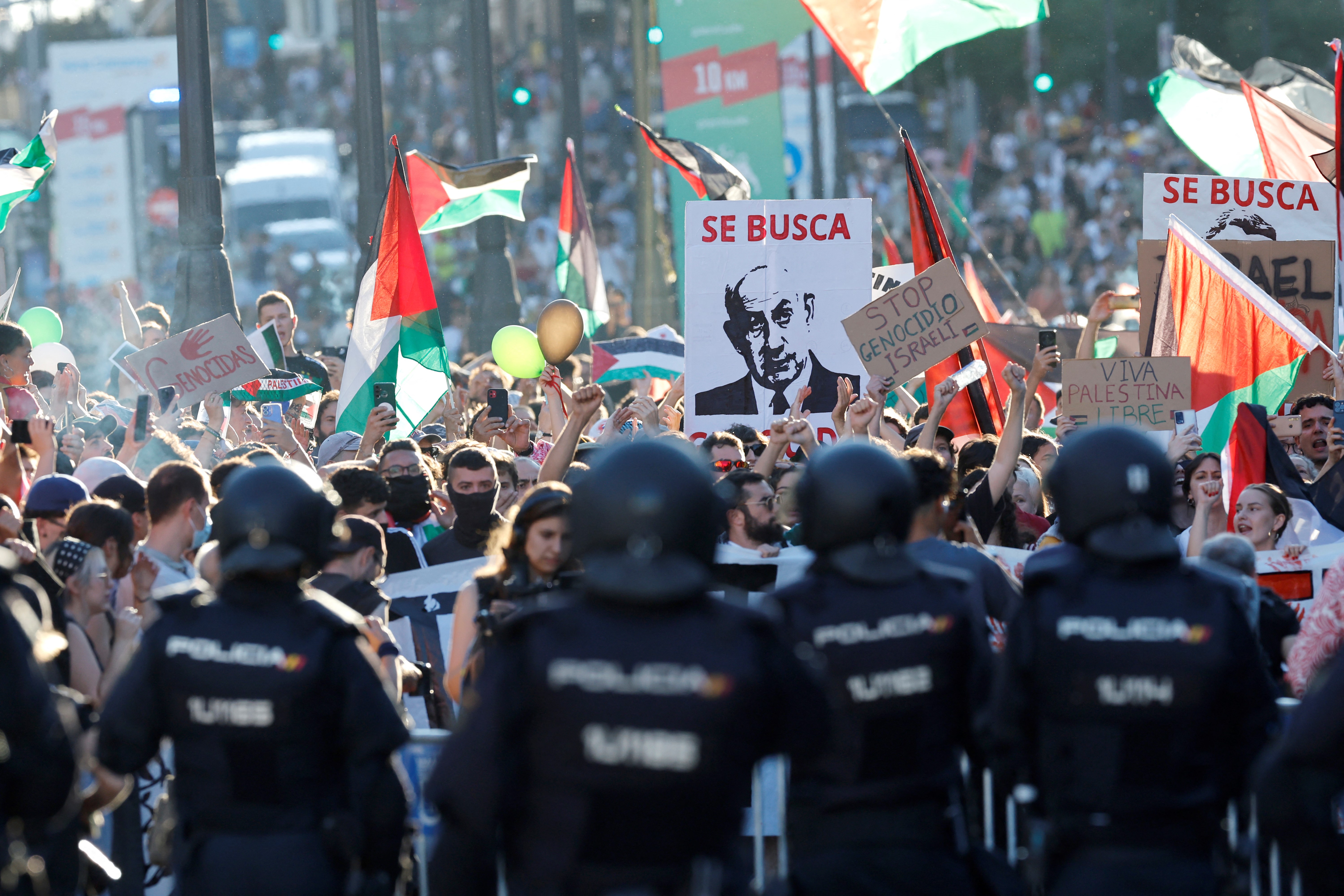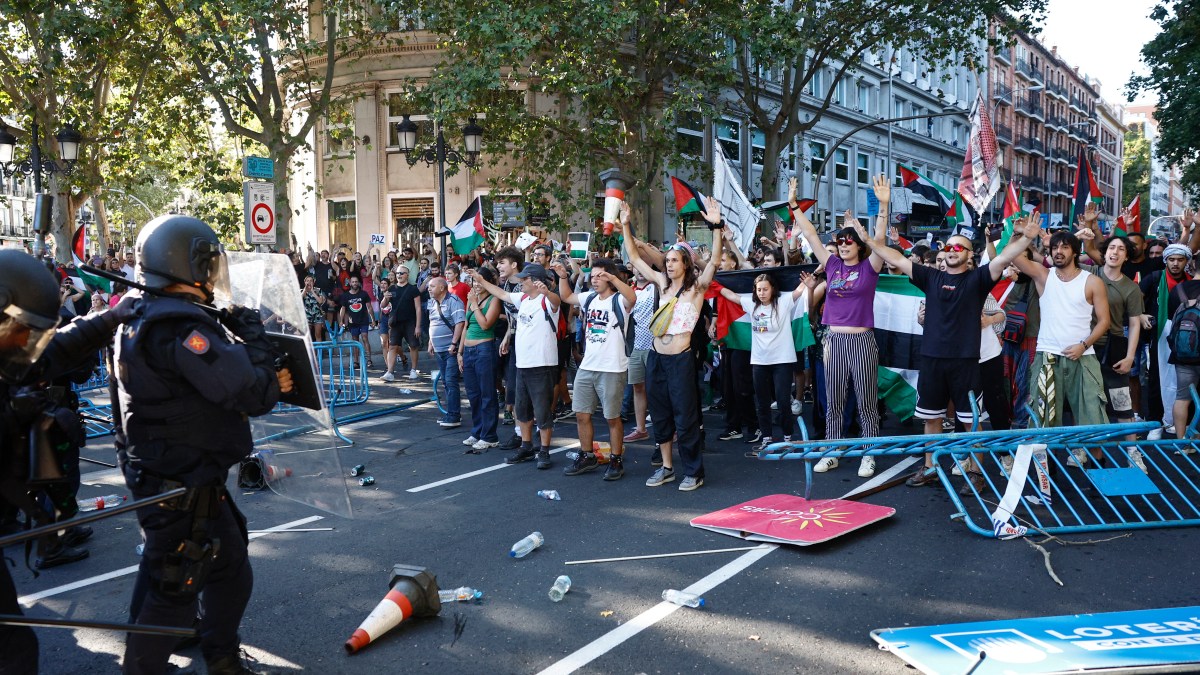The Vuelta a España, Spain’s most important cycling race, was cancelled as it reached its climax on Sunday when thousands of pro-Palestinian demonstrators invaded the finish point in central Madrid during clashes with police.
Earlier Pedro Sánchez, the Spanish prime minister, said the protests which have taken place in every city through which the Vuelta has passed filled him with “pride”, as Spain’s relations with Israel reached a new low.
Organisers decided they had no choice but to call off the grand finale as the capital was filled with Palestinian flag-waving demonstrators, some of whom broke through security cordons to occupy the capital’s landmark streets in order to prevent competitors from reaching the finish line.

Police clash with pro-Palestinians protesters near Madrid’s Cibeles Fountain
THOMAS COEX/GETTY IMAGES

OSCAR DEL POZO/GETTY IMAGES
More than 1,500 police officers were deployed in the Spanish capital’s biggest security operation since the 2022 Nato summit, as demonstrators protested over the participation of an Israeli cycle team in the Vuelta a España.
On Gran Via, where cyclists were due to pass multiple times, protesters knocked down barriers and marched into the road, some chanting for a boycott of Israel as green and red smoke filled the air.
Near Atocha, Madrid’s central train station, police charged demonstrators and fired tear gas, before letting them walk into the road.
Riders, about 56km from the finish line, came to a halt before the Vuelta was abandoned.

A commissioner informs the overall leader, Danish rider Jonas Vingegaard, left, of Visma team, and the rest of the riders about the cancellation of the Vuelta
JAVIER LIZON/EPA

Vingegaard at a standstill due to the pro-Palestinian protests
DARIO BELINGHERI/GETTY IMAGES
Tension between the socialist-led government and Israel has escalated after Sánchez’s repeated calls to stop the “genocide” in Gaza.
Last week while announcing another arms embargo and the recall of Spain’s ambassador, Sánchez said: “Spain, as you know, doesn’t have nuclear bombs, nor aircraft carriers, nor large oil reserves. We alone can’t stop the Israeli offensive. But that doesn’t mean we won’t stop trying. Because there are causes worth fighting for, even if winning them isn’t in our sole power.”
Binyamin Netanyahu, Israel’s prime minister, responded by calling the remark “irresponsible and inflammatory” and “a blatant genocidal threat” against Israel.

Protesters facing off with police in Madrid
OSCAR DEL POZO/GETTY IMAGES
The diplomatic rift deepened on Sunday, before the last leg of the Vuelta commenced, when Sánchez told a socialist rally: “Spain today shines as an example and as a source of pride, an example to an international community where it sees Spain taking a step forward in the defence of human rights.”
Alberto Núñez Feijóo, the leader of the conservative opposition People’s Party, lashed out on X at the protest, which he said “gave such a shameful image”. “Instead of ministers encouraging it, the government should condemn, denounce and prevent it,” he added.
Feijóo blamed the country’s left-wing government for an “international embarrassment”, adding: “The government has allowed and induced the non-completion of the Vuelta and, in this way, an international embarrassment televised worldwide.”
Barriers lined the race route to the finishing line along the Paseo de la Castellana, while helicopters patrolled overhead to deter disruption.
Earlier stages in the tour had to be shortened after protests blocked the course in several cities. Left-wing politicians called on supporters to join the demonstrations. Mónica García, the health minister, urged a “massive and peaceful” protest, asking the public to express “rejection of genocide” in Gaza.

